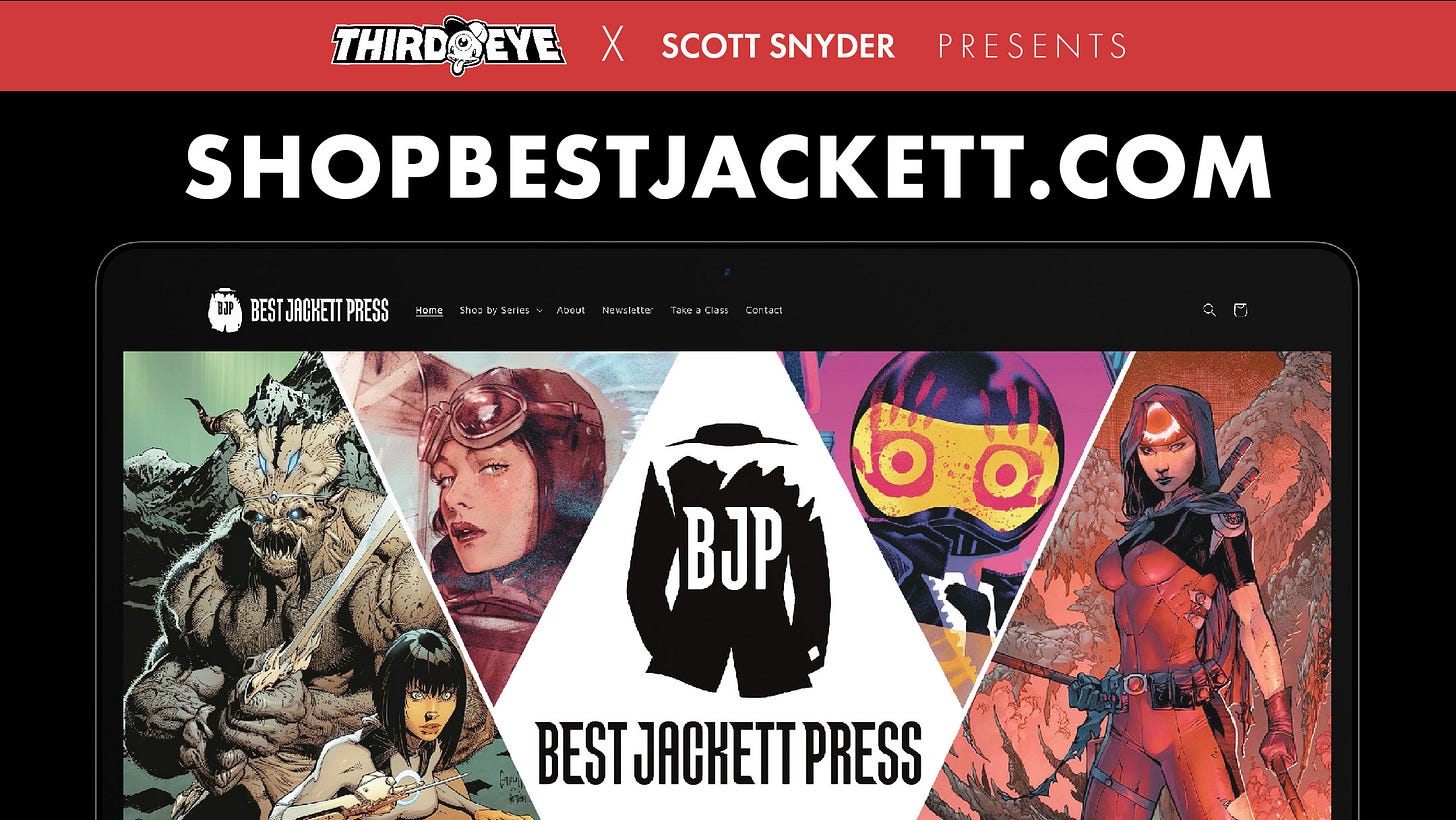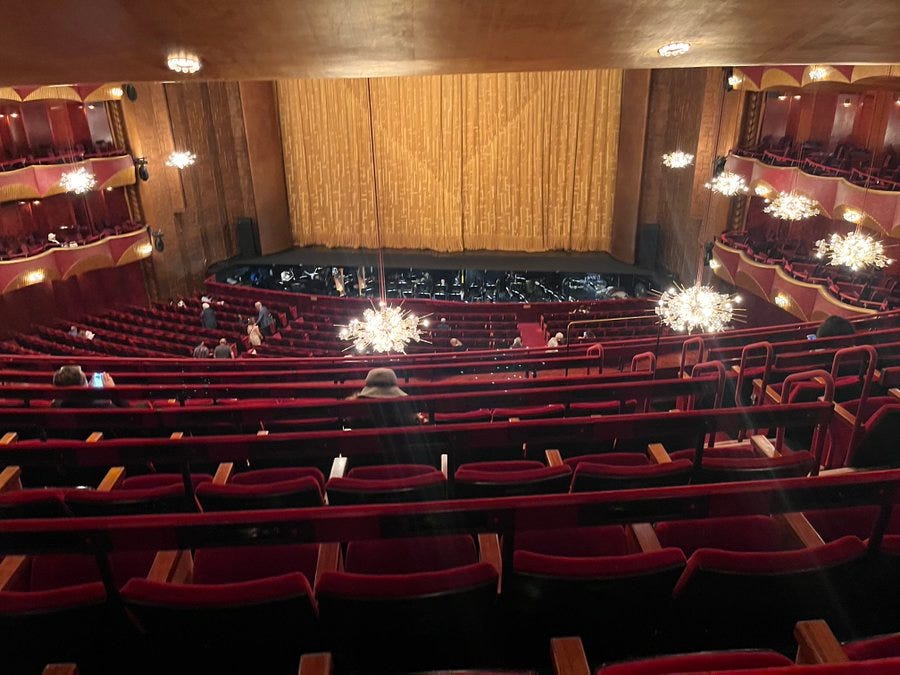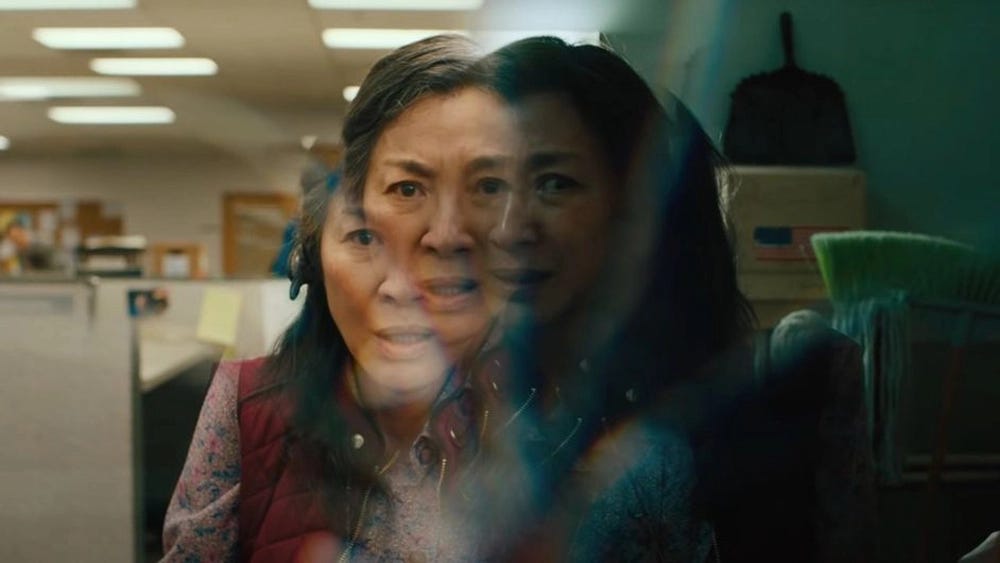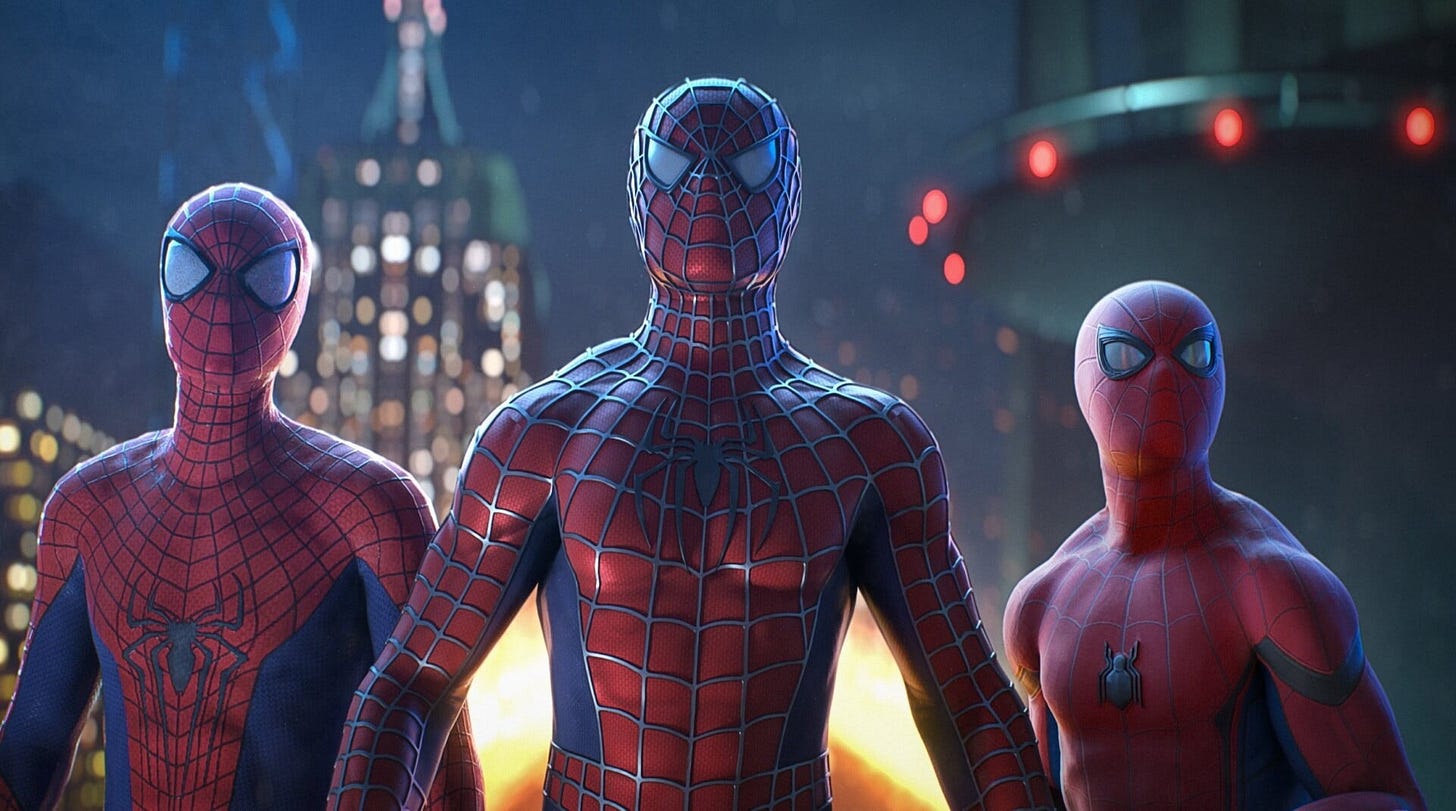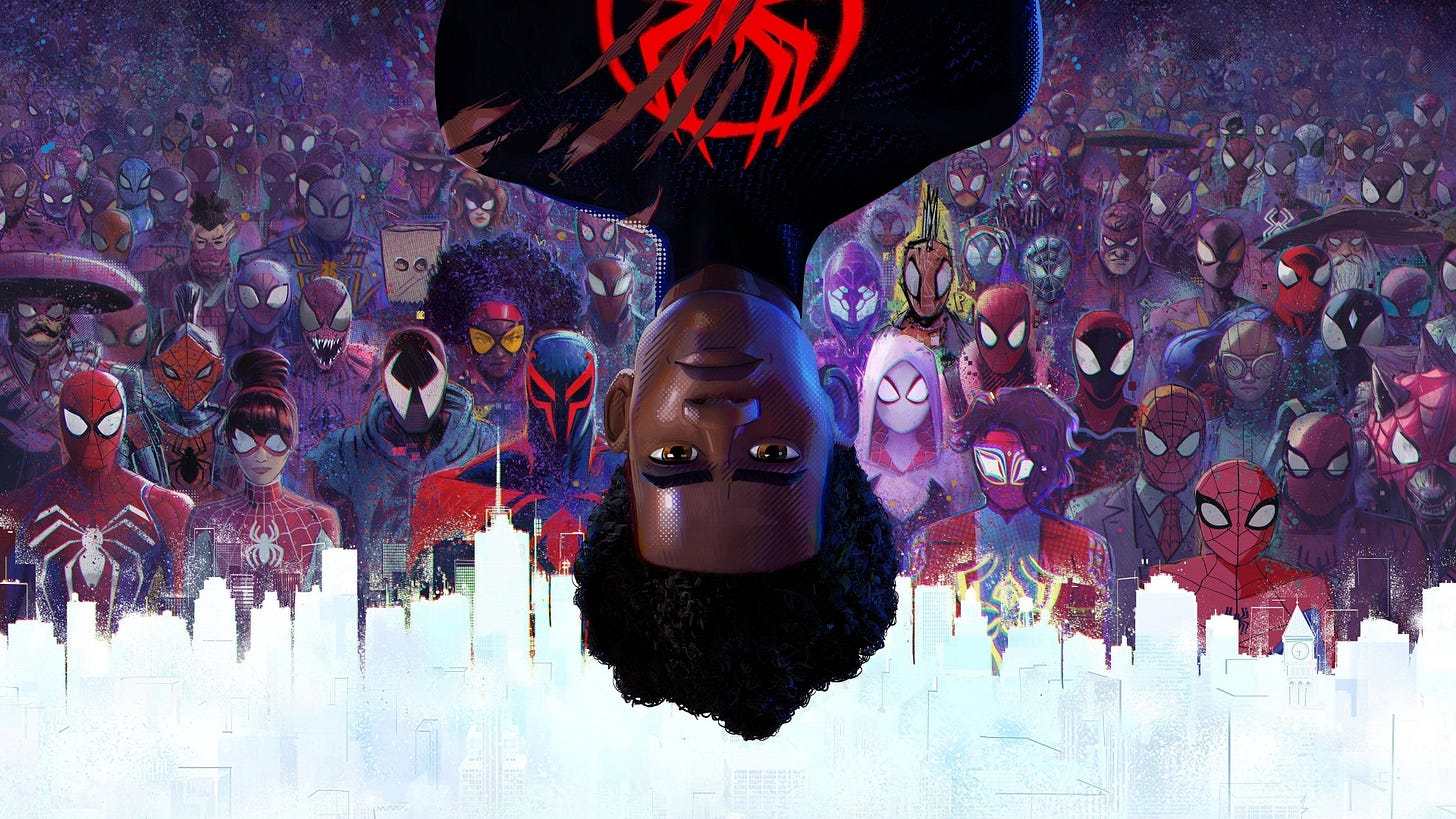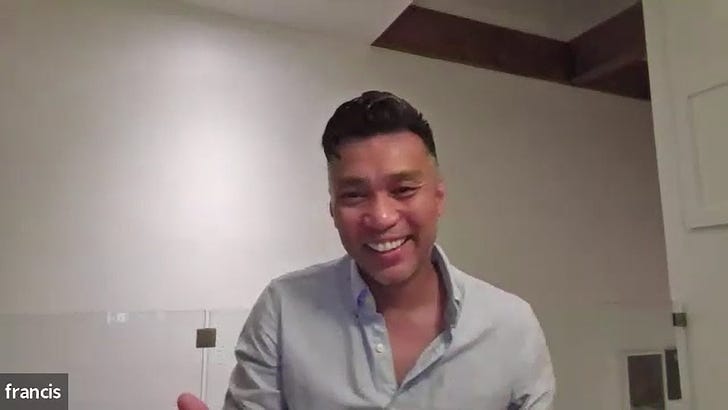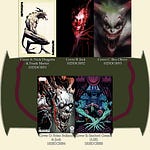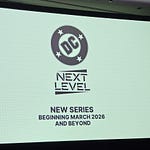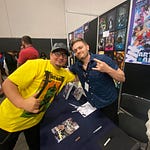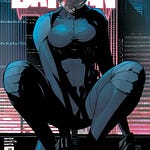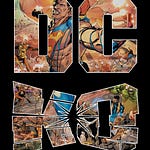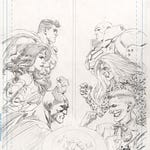Hey guys, it's Scott.
It is Tuesday, June 27th. And, man, I can't believe June is almost over. I know I say it every month, but I still can't believe it. So, very quick housekeeping stuff. We're really excited. We have a BRAND NEW WEBSITE!
It is powered by the great Third Eye Comics down in Maryland, one of my favorite stores in the world. And so it's all new, it's redone, you can order all of our books that we have in print at this point from them, and you'll be ordering through Third Eye, so it supports a good shop. I thoroughly recommend going down and checking out their amazing store, they have two. Steve and everybody there do a great job. So yeah, go check out the site. We're going to put up merch next week, I think. We'll have some T-shirts and we're just going to grow from there. But I really hope you enjoy it, let us know!
Secondly, we have San Diego coming up in less than a month, which is blowing my mind. But if you are a Best Jackett paid subscriber, you can come to every signing I'm doing at the beginning and I'll have like, a 10 minute section where you guys get to skip the line. I hate saying “cut the line,” but you have a separate line, a separate line that begins right as the signing starts. So don't come later, just come at the very beginning of the signing, I’ll do your books, you will skip the monstrous lines of San Diego and get to come say hi, it'll be fun. If you are a Black Jackett Club member, we have our dinner. We have our final headcount all set. There's a whole bunch of you, it's going to be a lot of fun, dinner on us. We'll have a couple of drinks, there might be a surprise guest or two. It'll be a blast, I can't wait. We're probably going to do it Thursday night, but we'll send out the details really soon.
Man, fun weekend, If you follow me on social media, I said it briefly, but I went to the ballet, which was a new thing. I've only been twice in my life. The first time was on my very first date with my wife Jeanie. We were students and the tickets like, fell into our lap. I had never been to the ballet. And she had, she knew it, but we went and I embarrassed myself by thinking people sang. But she she stuck with me and now twenty years later, we thought “why not go back?” So it was amazing. We went and saw Like Water for Chocolate, I loved it.
The other great thing this weekend, I finally saw Across the Spider-Verse. I took the kids to see it, it was a blast. And I was just blown away. I knew I'd love it, but I mean, I was really blown away by by how progressive and daring it was in its storytelling, in its ideology, in everything. I mean, obviously in its aesthetic it was just groundbreaking. But as somebody who used, and is still using, I guess, the the concept of the multiverse a lot through DC, it really got me thinking about the bold way that it was applied in that film. Because a multiverse is a tool. It's like silly putty, you can use it for anything. You can use it for some deep exploration of the self like in Loki or to mine family drama in Everything Everywhere All at Once. But predominantly in like, franchise storytelling, it's used for one of two things and they kind of exist at diametrically opposed polls. One is to revisit past storylines to give closure to things that were left open ended, to show fans that the things that mattered to them in the past are still relevant or still resonant, and using that all generally as a way for moving forward. But it's about looking backwards so that you can kind of put a bow on things and kind of go forward.
The other extreme is to use the multiverse as a way to completely open up new concepts and new characters and new landscapes and to show alternate versions of the universe that has never been conceived before. And that to me is more about breaking the rules and pushing into new territory and reinventing in some way. And two Spider-Man movies in the last few years now have used it in those exact ways, right? No Way Home, which I loved, so it's not one way is better than the other, but No Way Home used it to really bring the entire Spider-Man mythology and past iterations to a close with this third culmination Tom Holland movie. And so that one really use the former kind of application of the multiverse.
The latter application of the multiverse is come full display in Spider-Verse, right? So both things, but in this Spider-Verse in particular where everything is about introducing new characters, and obviously those characters exist in the comic books, but for 99% of the population, there are new characters—Jessica and Hobie and all these characters. So it's about expanding the mythology *MILD SPOILERS, so if you if you don't know anything about the movie, stop listening for like 30 seconds* but even the concept that there are these canon events that define what a Spider-Man has to experience to become a Spider-Man, even that notion that Miles is undercutting by being an anomaly and by arguing that really, Spider-Man doesn't need to happen that way. The concept itself, the entire point of the story, speaks to the same sort of philosophy that you get with that application of the multiverse, with that progressive daring application of the multiverse.
And so it was just fascinating to watch something so singularly and wholly self aware in its brilliant take on everything. I just loved it. And again, you can do both things at once too, a lot of what we did in Metal and Death Metal in particular were about using both applications of the multiverse and saying, “hey, look, we're showing you that everything you love is still there and we're going to bring it back in fun ways, but we're also going to use the multiverse to break the Source Wall to introduce new characters like Batman Who Laughs, Perpetua, the World Forger, the World Forge itself, the Dark Multiverse, and expand beyond the Source Wall to places that you haven't seen, bring in all the evil Batmen and everything.” So the whole fun was both things at once.
Anyway, I’m gonna answer two of your questions for paid subscribers. Also, we have Part Two that we're posting on Thursday of my talk with Francis Manapul, I hope you'll check it out. Here’s Part One for all you paid subscribers:
Newsletter #145: Our Best Chat-kett: Francis Manapul (Part 1)
Listen now (32 min) | Hey guys, it’s Scott. I had such a great time talking to Francis last night, and I hope you enjoy watching it just as much. We’re going to be running this conversation in three parts over the next few posts just for you, our paid Best Jackett subscribers.
It was one of the best talks I've ever had, honestly, with a friend and creator. He's so smart, he's a teacher himself. He's so wise, and the stuff that we talked about from how to make it in comics, how he broke in, the differences between the industry now and 10/15 years ago, I really think aren't just good conversation and deep cuts stuff if you're a fan of either of us, I honestly think a lot of really good applicable advice came out of it, from him in particular, about making your way in comics these days. I think it's pretty priceless information. So I hope you'll check it out, especially with the whole #ComicsBrokeMe discussion happening. We referenced it a bit and we're both trying to give advice to help create sustainable careers. Okay, so two quick questions…
ShaneCruise asks, “Who do you recommend should be read if you want to write horror?”
That's a tough one, Shane. But what I'd say is obviously, there are the staples that I love from Stephen King, Dean Koontz, Richard Matheson, and Shirley Jackson. But what I'd say is cast a wide net. That's the thing that I didn't realize when I was coming up. I really dug into the things that I thought were exactly my kind of horror. And there's value in that. But I think one of the things that Francis says, in this talk that we just had that I was just mentioning, was that the greatest moments in his career where he really came to define himself are when he went outside his comfort zone, both in the things that he was taking in as a creator, the things that he was reading and looking at for art, but also the things he was trying. It was interesting, it was sort of paradoxically what he was saying was that by stepping outside of the familiar, you wind up understanding what things are core values to you more clearly. And so the more you reach outside of what you know, the more you wind up knowing yourself in some way by the things that you now gravitate towards, or the things that you're repelled by. So some things I'd say are just cast a wide net. There's so many great horror writers out there right now.
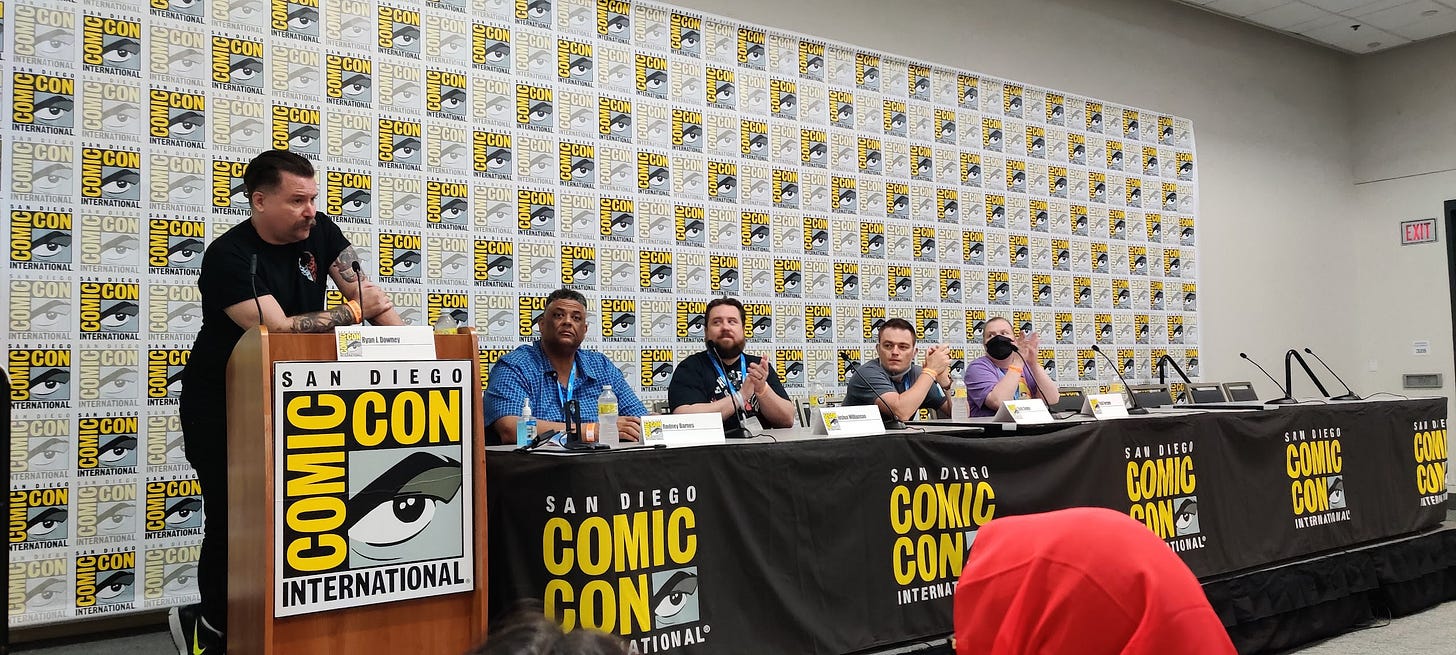
And in comics, I'd say Cullen Bunn—Harrow County if you want like, long form stuff, that and The Sixth Gun are fantastic. If you want more short stories, Michael Walsh's The Silver Coin from Image is fantastic. It's an anthology series that follows this coin and each issue is self contained and he's got some of the best people in comics working on it. Emily Carroll, if you want something that's a little bit more abstract and slow burn. But just again cast a wide net. Junji Ito for that sort of absolutely anxiety provoking body horror. So cast a wide net. A couple other people in fiction that I'd recommend right now are Joe Hill, obviously unbelievable, and James Tynion IV, of course, also in comics, I should have mentioned.
There’s Stephen Graham Jones with My Heart is a Chainsaw, I love that book. Paul Trembley with A Head Full of Ghosts. Eric LaRocca is great, too, he did Things Have Gotten Worse Since We Last Spoke. If you want something that's a little bit lighter but still really scary, Kelly Link, all of her books, but Magic for Beginners is one of my favorites. Hope that helps. But cast a wide net, cast a wide net, Look at every kind of horror because again, you'll find techniques if you're reading something that's really scary, but not your style that you might pull from even if you don't lean into the priorities or sensibilities of that kind of horror. So yeah, define yourself by looking outside.
Tony asks, “for hiring an editor for a self publishing endeavor, any good resources, and what would you do in terms of finding the right editor?”
The thing that I would do is understand that you should find the right kind of editor for you. There are editors who really are great at just keeping the calculus of a book going, keeping the trains running. That's like, making sure everybody is invoicing, making sure everything is on time, making sure everything's uploaded to a shared Dropbox—the art, the letters, the inks, everything. So that’s the organizational aspect of it. And then there's the story aspect of it. Some people really want an editor who just does the organizational stuff, some people want an editor they can talk story with as well. I like the latter, I love talking story. I depend on editors that I think are even better judges of it than me, like Will Dennis and Mark Doyle and others. But that's why I have Will with me is I literally just got off the phone with him right before this talking story, making sure he liked the ending of something coming up. But I love both. So when you reach out to editors, make sure you're telling them what you want.
There's no resource I know off the top of my head that's like, Editor Yellow Pages or whatever, but instead, what I do is look at the books that you love that have been self-published, or that are smaller indie books, and see who edited them and reach out. Most of them are on social media and have contact information there. And you can just say, “listen, this is what I can offer, this is what I'm working on, and this is the kind of editor I'm looking for. I love what you do, I've really enjoyed the books you've made, and I was wondering if we can have a conversation.” And just that, just be really honest, because you don't want to wind up with an editor who wants to talk story and you don't want to do that, or an editor who doesn't want to talk story and you do want to do, that’s even worse. So that's the best advice I can give.
Again, thank you guys for everything. I love doing this. We're going to do a class in a couple of weeks. I think it'll be fun. I want to do one it's just about how to write a superhero comic. Big masterclass. We're doing a one-on-ones again, we're all set up. So if you're in the Black Jackett Club, we'll start that up. And for everyone asking about reopening the Black Jackett Club, we can't yet, it's just so that capacity. After San Diego before New York we’ll try and open it for like, a week and take some people, but right now we're really as full as we can we can manage, but hopefully we can expand it next year. Anyway, thank you guys so much and happy summer!
S



